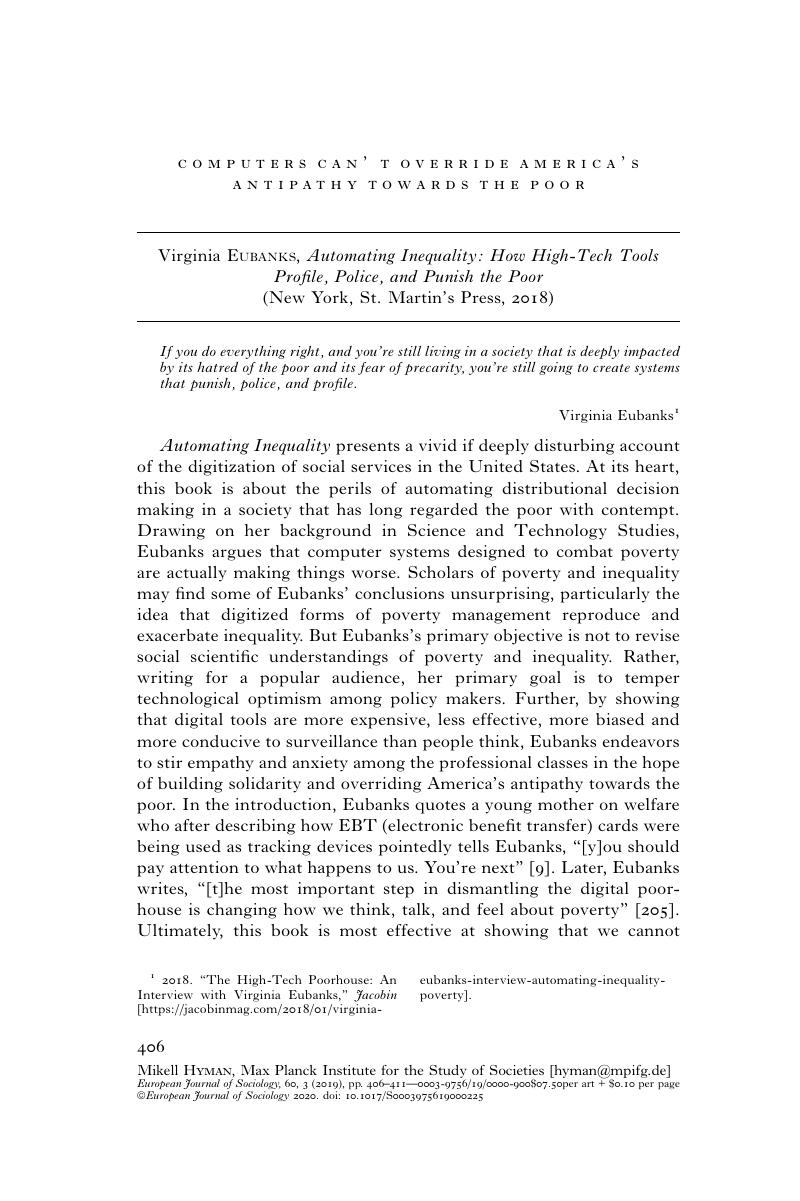No CrossRef data available.
Published online by Cambridge University Press: 14 February 2020

1 2018. “The High-Tech Poorhouse: An Interview with Virginia Eubanks,” Jacobin [https://jacobinmag.com/2018/01/virginia-eubanks-interview-automating-inequality-poverty].
2 Sabine Maasen, 2000, “Metaphors in the Social Sciences: Making Use and Making Sense of Them,” in F. Hallyn, ed., Metaphor and Analogy in the Sciences, Origins (Dordrecht, Springer Netherlands: 199-244); Debra C. Rosenthal, 1982, “Metaphors, Models, and Analogies in Social Science and Public Policy,” Political Behavior, 4 (3): 283-301.
3 Michel Foucault, 1977, Discipline & Punish: The Birth of the Prison (New York, Pantheon Books).